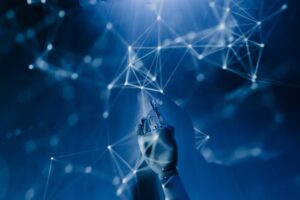Looming AI catastrophes

source: axios.com, contribution of Artemus FAN, Bill Amshey | image: pexels.com
The “godfather of AI” quit Google and joined a growing chorus of experts warning that the rush to deploy artificial intelligence could lead to disaster.
- Why it matters: When some of the smartest people building a technology warn it could turn on humans and shred our institutions, it’s worth listening, Axios global tech correspondent Ryan Heath writes in his debut.
Geoffrey Hinton, a top machine-learning pioneer, says he left Google so he can speak freely about the dangers of rushing generative AI products.
- “It is hard to see how you can prevent the bad actors from using it for bad things,” Hinton, 75, told The New York Times(subscription).
Axios asked AI experts — developers, researchers and regulators — to sketch their most plausible disaster fears. Their top 5:
1. Cyberattacks explode. The right prompts can now generate working malicious code, meaning more, bigger and increasingly diverse cyberattacks.
- Dario Amodei, CEO at Anthropic, which offers a rival to ChatGPT, told Axios CEO Jim VandeHei during a recent Axios HQ event that a massive expansion of such attacks is his biggest near-term worry.
2. Scams proliferate. Forget clumsy emails The new AI-assisted phishing and fraud schemes will take the form of real-sounding pleas for help in the faked voices of your friends and relatives, harvested from their social media.
3. Disinformation detonates. Propaganda and partisan assault will be optimized by algorithms and given mass distribution by tech giants.
- Multimodal AI — text, speech, video — could make it impossible for the public to separate fact and fiction.
4. Surveillance increases. America’s 70 million CCTV cameras and unregulated personal data already enable authorities to match people to footage.
- AI can supercharge this kind of tracking for both corporations and governments, enabling behavior prediction on a mass scale but with personalized precision.
5. Strongmen crack down. Mass digital data collection can give would-be autocrats a means to anticipate and defuse social anger that bypasses democratic debate.
🥊 Reality check: The tech industry’s AI product race is accelerating.
- Google CEO Sundar Pichai has warned of a “mismatch” between how fast AI is developing and how quickly our institutions can adapt. But he has also responded to competition from Microsoft and OpenAI by flooring the gas pedal on the company’s AI product launches.
